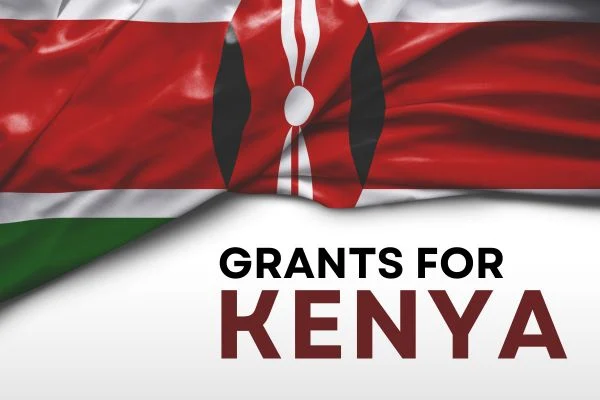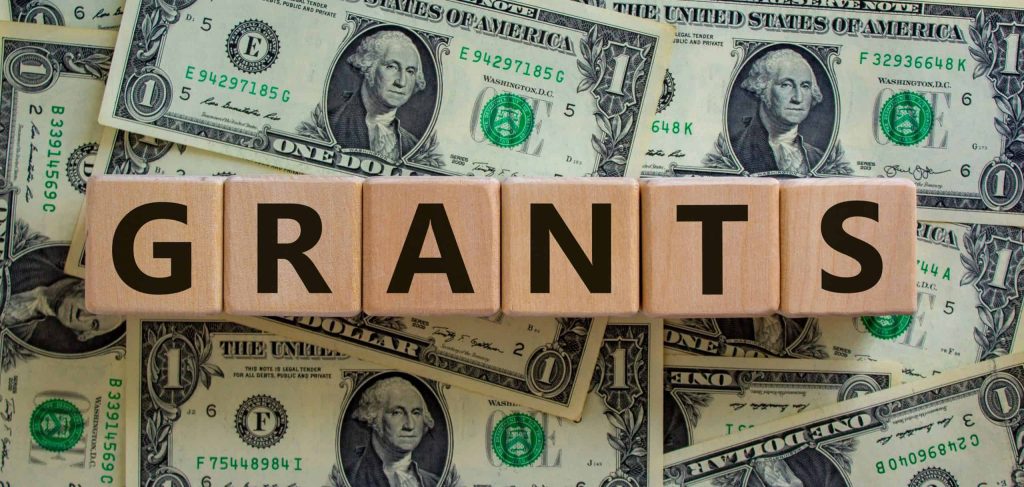Physical Address
60 Ekwema Cres, Layout 460281, Imo
Physical Address
60 Ekwema Cres, Layout 460281, Imo

Personal grants in Kenya are grants given to individuals (not companies) to fund personal development, education, small business or community project purposes. While they are not paid back like loans, knowing how to apply for personal grants online in Kenya is very essential.
In Kenya, various government agencies and donor organizations offer online personal grant programs targeted at youth, women, and vulnerable groups. Many of these schemes can now be accessed and applied for online.
As we walk through this writing, you will gain a better understanding on what personal grants are, who offers them, and step-by-step procedures on how to apply for personal grants online in Kenya.

In Kenya, personal grants usually refer to funding provided to individuals (not companies) for personal development, education, small business, or community projects. Unlike loans, grants do not need to be repaid.
Examples include small start-up seed grants, scholastic grants, or emergency hardship funds. For instance, government funds like the Uwezo Fund (for youth, women, and persons with disabilities) are designed to empower citizens through interest-free or low-interest credit.
The Women Enterprise Fund and the Youth Enterprise Development Fund also provide financial support to start-ups or growing businesses for women and youth, respectively.
Other personal grant sources are charitable organizations and international donors who may announce application calls for education or livelihood grants.
Most personal grants in Kenya are administered by public agencies or NGOs, and applications can often be made online. The eCitizen portal allows Kenyans to apply and pay for government services including funds like the Uwezo Fund.
Similarly, youth programs or university scholarships are often handled through university portals or NGO websites. When seeking personal grant opportunities, look for announcements on official sites (government portals, ministry websites, or approved NGOs) rather than unverified social media posts.
Check out to see How to Check Title Deed Online in Kenya | Full Guide

Various organizations offer grants in Kenya such as government funds, international donors, foundations, and commercial banks.
Key examples include:
Kenya has several state programs. The Uwezo Fund (for women, youth, PWDs) provides interest-free loans through the constituency offices and eCitizen. The Youth Enterprise Development Fund (YEDF) issues loans and grants to young business start-ups; eligible applicants apply in person or submit business proposals and bank statements online at county offices
The Women Enterprise Fund gives accessible, affordable credit to women for business growth. The Hustler Fund (NCBA Bank) is another digital loan initiative, though it requires repayment.
Development projects in Kenya are funded by international partners such as UKAID, the European Union, and USAID. As an example, agriculture and education programs have long been assisted by USAID, while the EU invests in sustainable development projects. Foundations such as the Ford Foundation focus on social causes like women’s empowerment.
These donors often channel funds through local NGOs or government programs, but occasionally individuals can apply if they run a nonprofit project. It’s wise to register any local initiative and look out for open grant calls by these agencies.
Some banks offer grant-like loans to customers or the public. For example, Equity Bank has youth and student credit lines. Similarly, microfinance institutions partner with donors to disburse small grants. Safaricom’s M-Pesa Foundation and Equity Bank Foundation occasionally have competitions for social projects, though mainly for group enterprises.
Kenyans often rely on community efforts or online crowdfunding for personal needs. The spirit of harambee (“pulling together”) means families and communities raise money via collective contributions or mobile fundraising platforms like M-Changa.
Local churches or community groups may also sponsor needy individuals. This is informal but an effective source of capital for personal projects.
In seeking grants, prioritize official and legitimate sources, such as government websites, registered NGOs and recognized donor announcements. Do not fall into scam social media adverts that promise unverified “free grants”.
Read also: How to Check How Many Sim Registered on My ID Card in Kenya Online | Full Guide
If you want to attract local or international donors for your project, you have to give due attention to this structured approach.
Pinpoint exactly what your project is (e.g. start-up capital, tuition, health support). Make just a simple project outline or proposal with objectives, timeline, and budget. Donors like to look at practicality and impact.
Find Appropriate Donors: Seek funding organizations with a similar cause. Agricultural projects may appeal to USAID or AGRA; women’s education to foundations like Ford Foundation or UN Women.
Young entrepreneurs could check Youth Fund or MasterCard Foundation programs. Use directories (e.g., Devex, NGOs in Kenya listings) and public notices of government agencies. Most University scholarships that may be posted on the ministry of education or school websites.
Establish connections and Network: Develop relations with the local development forums, business incubators or with diaspora networks. Go to funding seminars or webinars. Register your project or community-based organization (even informal groups can often be sponsors).
donors may fund registered associations more readily than unknown individuals. For instance, many Kenyan banks and agencies require a business or group registration to process fund disbursement.
Write a brief proposal/cover letter that identifies the need, solution, and anticipated outcome of your project. Personalize every submission: research the donor areas of interest and state how your work would be relevant to their interests. Support requests with data or success stories if available. For example, the Youth Fund requires a business plan with projected profits; ensure yours is realistic.
Submit applications through official websites or email as instructed. For example, some donor websites allow online forms or require emailing proposals.
You can build a crowdfunding page in a local campaign (using local services such as M-Changa). Messaging and social media (twitter, LinkedIn, WhatsApp groups) can be also used to spread the word, but should always link back to your documented proposal.
If you send applications or proposals, follow up politely after a few weeks. Maintain a thorough record of who you contacted and be ready to present proof of previous work (even photos or receipts) in case of demand.
Once funding has commenced, ensure you remain transparent in what you are doing (e.g. give progress reports or accounts) to build trust for future support.
Through careful alignment with the goals of a donor and due procedures in applying using formal applications, your chances of securing funding is increased.
Consider the harambee tradition in Kenya: leveraging your own network (family, community events, community fundraising) may also convey commitment and occasionally may provide immediate funds when you need it and other sources are slower to respond.
Read more on How to Apply For Green Card in Kenya Online | Full Guide

The online application process consists of identifying where these opportunities are and the application processes. The following is a step-by-step procedure on How to Apply for Personal Grants Online in Kenya:
You can begin with official websites and well-established portals. Government grants: Visit the eCitizen portal and the appropriate ministry (e.g. Ministry of Gender or Youth Affairs). In case of NGOs, frequently visit sites of donors such as USAID-Kenya or philanthropic foundations (they often have announcements of calls to proposals).
Subscribe to newsletters of funding sites or NGOs to catch announcements. Also, reputable community bulletin websites and newspaper trusts may list new grant openings.
Each grant has criteria (age, gender, business activity, location). Carefully read requirements. For example, the Youth Enterprise Fund requires applicants be 18–34 years old (or businesses mainly run by youth). Certain grants are more inclined toward groups or registered projects than individuals, so make sure you can comply with them.
These are usually your national ID or passport, KRA PIN certificate, bank account details, project proposal or business plan.
Even if applying informally, draft a clear explanation of how you’ll use funds. If required, gather group registration certificates or letters of support (e.g., a Women’s Fund might ask for a letter from a village elder confirming group membership). Save or scan all documents in PDF form if uploading.
For government grants like Uwezo or Youth Fund, use the eCitizen portal. For example, to apply for Uwezo Fund finance, log in to eCitizen and select “Uwezo Fund” under business services. The portal will prompt you to complete an online application form.
For other grants, you might upload forms on NGO websites or email the proposal to a specified address. Avoid unofficial intermediaries: always apply through links provided by the granting organization.
Enter all details truthfully. Use the exact phrase “How to Apply for Personal Grants Online in Kenya” when writing content? Actually, do not do that verbatim in forms, this is for SEO. But in our article we aim for those keywords.
In the actual application, focus on clarity. Double-check numbers and spellings. If a questionnaire ask for the project timeline or results, be specific (e.g., “deliver clean water to 50 households before March 2026”).
After submitting online, keep track or make note of any reference (or tracking) number. eCitizen, for example, often generates a confirmation slip. Save or print it.
Some systems allow you to log back in to check the status. For offline grants (like emailing a foundation), send requests to a verifiable contact and politely inquire after a few weeks if you haven’t heard back.
By following these steps, you can streamline the application for personal grants online in Kenya. Be thorough and patient; processing times vary from weeks to months. After submission, continue seeking feedback or improve other opportunities – persistent effort often pays off.
Explore to see How to Make Money Online In Kenya through Mpesa
Developing a case for support gets donors to invest in your organization
Bill and Melinda Gates Foundation
Oxfam International
Finding personal grants in Kenya is a process that necessitates research, preparation, and resilience. The first step is to find the appropriate grant program that suits the situation you need, make sure that you fit the eligibility criteria, and gather all necessary documentation.
Communicate with funders clearly and honestly, throughout the process. Always get any grant announcement through official websites and do not pay to get a guaranteed grant.
Through hard work and right approach, you can effectively leverage online personal grants to achieve your goals whether that is funding education, microbusinesses or community projects.